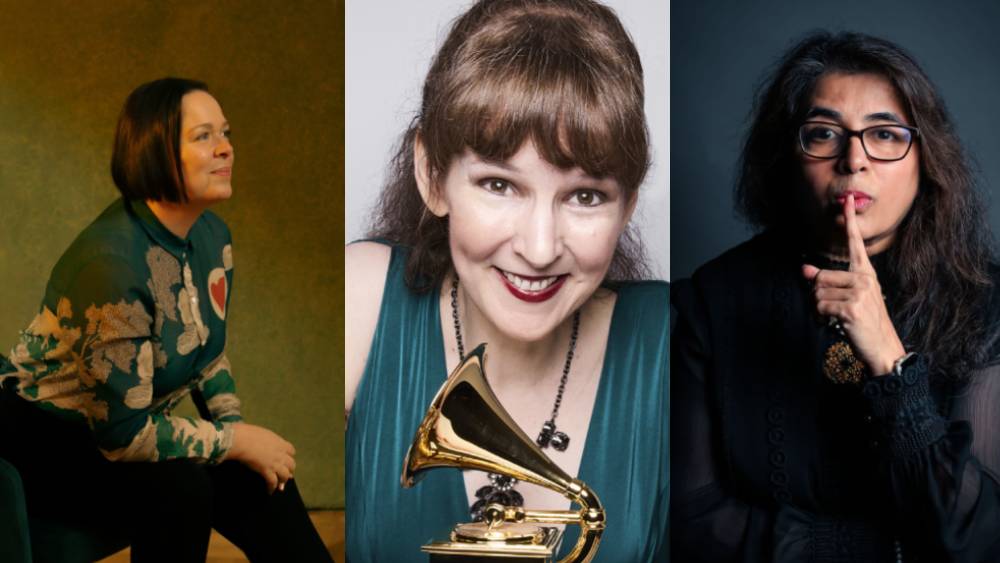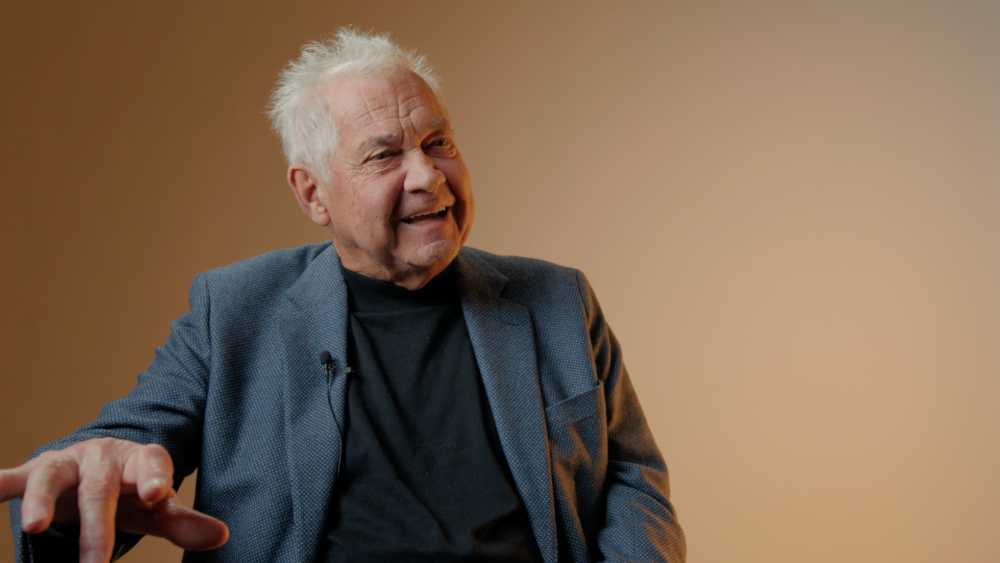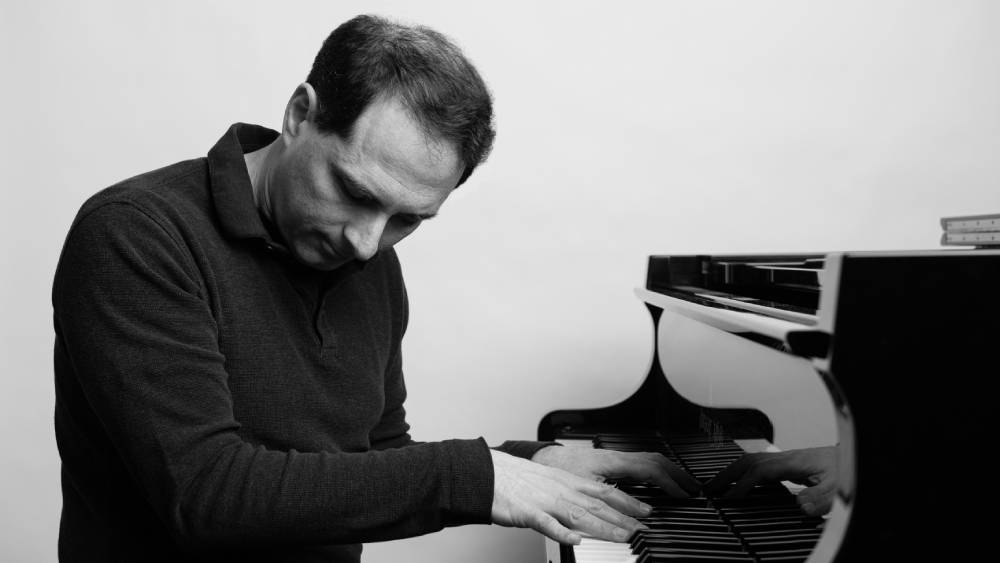Film music can often be just as memorable as the movies themselves. From the inspired inclusion of Radiohead's melancholic Talk Show Host in Baz Luhrmann's Romeo + Juliet to the murderously good use of Huey Lewis and the News’ Hip to Be Square in Mary Harron’s American Psycho, the most unforgettable marriages of music and film can't ever be separated.
But behind the scenes, there’s a multi-step creative process at play. From those first meetings between directors and music supervisors to the significant work that then goes into either composing or selecting the music, a clear understanding of the different roles film music can play must always be established. Indeed, film professionals often reach out to music creators — including those with no existing background in movies — to help them figure out the sonic landscape of their own visual creation, in turn opening the door for these musicians to a new form of creative collaboration.
These themes were among those discussed during MUBI's recent Music’s Leading Role In Film panel at AVA London 2025. Moderated by NTS DJ Tarzsa, a trio of panellists — Raffertie (electronic musician and composer, The Substance and I May Destroy You), Naqqash Khalid (In Camera director) and Lucy Bright (music publisher and music supervisor, Tár and Aftersun) — spoke about getting into the world of film music as well as the creative processes and critical relationships that underpin memorable on-screen music choices.
Here’s a roundup of the key insights we gained from the panel.
Music can play a dual role in bringing a film to life
Lucy, who won the first-ever British Independent Film Awards prize for music supervision for her work on Aftersun, noted that film music can carry discreet responsibilities. Best known for her emotion-riven mixing of Queen and David Bowie’s Under Pressure with Oliver Coates' original Aftersun score, Lucy explained that songs are often used in films to create context.
‘In Aftersun, the songs are very much [used] to put you in the time [the film is set],’ she said, adding that this meant lots of deep research on her part when pulling the 1990s-leaning soundtrack together. ‘Whereas Oliver's original score is there to take you out of time, taking you above the action and bringing the emotion.’
'The Aftersun score takes you above the action and brings the emotion.' - Lucy Bright
Naqqash spoke about the specialised role music creators play in filmmaking, most notably with trying to find a sonic voice for the hard-to-quantify elements of a film. Working with electronic musician and composer Clark on In Camera’s score, their immediate creative connection allowed him to ask Clark for help in creating those ‘unquantifiable’ elements: ‘I thought his deconstructed music style could help bring atmosphere [to life], which is important for me… we were then able to have conversations about [how music can help] the colour, shape, texture and feeling [of a film].’
Music can also be used to accentuate character, explained Raffertie. He recounted how The Substance’s director Coralie Fargeat initially tasked him with creating sonic sketches, which could then be built into a bigger score to match the film's characters and important facets: ‘Coralie was specific about wanting a sound to match the character, the seduction of youth and the substance itself.'
There’s no set process for writing music to picture
When working on The Substance, Raffertie said that he and Coralie embarked on a 'very collaborative process' whereby they discussed 'a lot about Hollywood nostalgia'.
‘It was like creating a [sound] palette for the film from seven or eight ideas, and from that we made songs like the techno-leaning title track,’ he recalled. 'The composer-director relationship is critical, as is time pressure. But then there's also the task of understanding the internal workings of a certain character.’
Naqqash adopted a more hand-in-hand approach when working on the music for In Camera. As the film progressed, the former would often build playlists for his actors to help them better understand their characters.
‘A lot of those tracks then inspired the film,’ he added. ‘The film’s structure comes from the music, and a [musical] switch can help communicate a change.'
'The composer-director relationship in a film is critical.' - Raffertie
Don't underestimate the power of the temp score
Discussing the use of temp scores — referring to the placeholder music that is typically deployed during the editing process to demonstrate the feel of a particular scene or scenes — Raffertie said that they can really aid composers, as they can use these audio signposts to really dig into the dynamics of certain scenes when writing the score.
In terms of the sync angle, for indie films — which typically lack a big budget or a slew of star names — getting rights to specific well-known songs can be difficult. Recalling her work on Aftersun, Lucy said that during its editing process the production team were using a bootleg version of Under Pressure to soundtrack a pivotal scene. It meant that, upon contacting David Bowie’s estate when asking for permission to use the proper song, they had to front up about their plans.
‘When you’re trying to get permission for a song, don’t hide anything,’ she advised. ‘We had one shot to get the rights, so we made [the bootleg version of Under Pressure] sound amazing with the Aftersun score [to demonstrate]. Luckily, the [Bowie estate] really cared about the art.’
Opportunity can always present itself for budding film and TV composers
By his own admission, Raffertie’s almost-accidental route to composing the score for an Oscar-nominated film was something that he himself didn't see coming. He told the AVA audience about his move away from classical and contemporary music composition, which he studied at the Royal Birmingham Conservatoire, to a succession of ‘one-off’ scoring jobs across various media. His breakthrough moment, though, came when he was tasked with writing original music for Michaela Coel's acclaimed 2020 TV series I May Destroy You.
‘Initially, I didn’t know how I’d fit in among the needle drops [pre-existing songs used in films],' he recalled. 'But they said, "Have a think about it!"'
Noting the importance of loving a script and having a good relationship with the director, Raffertie added that musicians shouldn’t worry about following a perfect road map when it comes to breaking into this part of the industry: ‘I wish I could say my career was well-thought out. But you have to follow your instinct and just keep your eyes out for opportunities.’





